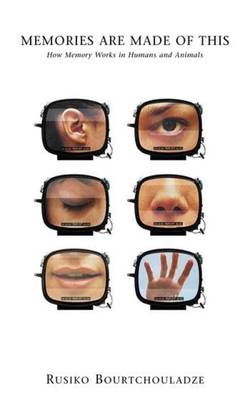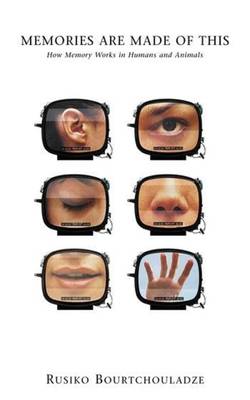
Je cadeautjes zeker op tijd in huis hebben voor de feestdagen? Kom langs in onze winkels en vind het perfecte geschenk!
- Afhalen na 1 uur in een winkel met voorraad
- Gratis thuislevering in België vanaf € 30
- Ruim aanbod met 7 miljoen producten
Je cadeautjes zeker op tijd in huis hebben voor de feestdagen? Kom langs in onze winkels en vind het perfecte geschenk!
- Afhalen na 1 uur in een winkel met voorraad
- Gratis thuislevering in België vanaf € 30
- Ruim aanbod met 7 miljoen producten
Zoeken
€ 54,45
+ 108 punten
Omschrijving
Memory enables us to make experience meaningful and to form coherent identities for ourselves and intelligible perceptions of others. Indeed, our ability to imagine, anticipate, and create the future is directly commensurate with our ability to retrieve and recollect past experiences.
But for all its vital importance in human cognition, for all that it seems so ordinary and obvious, memory remains in many ways as complex and mysterious today as it seemed to ancient philosophers. We need only to think about the "tip-of-the-tongue" experience to wonder how memories are formed, where they reside in our brains, and why some are retained, while others are forgotten. What is the difference between long- and short-term memory? Can memory be strengthened? Memories Are Made of This is an account of current memory science that offers answers to these and a host of other questions, comprehensively distilling much diverse and rigorous science. It delves into the biology of memory functions and researches into the mechanics and genetics of memory and the importance of emotions, particularly those resulting from trauma, in the memory process. Of special focus are investigations of cognition in other species. Are we the only animals who remember and forget? If not, are there commonalties in the memories of different species? The book also surveys our understanding of the effects of injury and disease on memory and concludes with an assessment of emerging pharmacological efforts to preserve and protect our memories and, in turn, ourselves.Specificaties
Betrokkenen
- Auteur(s):
- Uitgeverij:
Inhoud
- Aantal bladzijden:
- 208
- Taal:
- Engels
- Reeks:
Eigenschappen
- Productcode (EAN):
- 9780231120210
- Verschijningsdatum:
- 18/02/2004
- Uitvoering:
- Paperback
- Formaat:
- Trade paperback (VS)
- Afmetingen:
- 140 mm x 226 mm
- Gewicht:
- 317 g

Alleen bij Standaard Boekhandel
+ 108 punten op je klantenkaart van Standaard Boekhandel
Beoordelingen
We publiceren alleen reviews die voldoen aan de voorwaarden voor reviews. Bekijk onze voorwaarden voor reviews.









